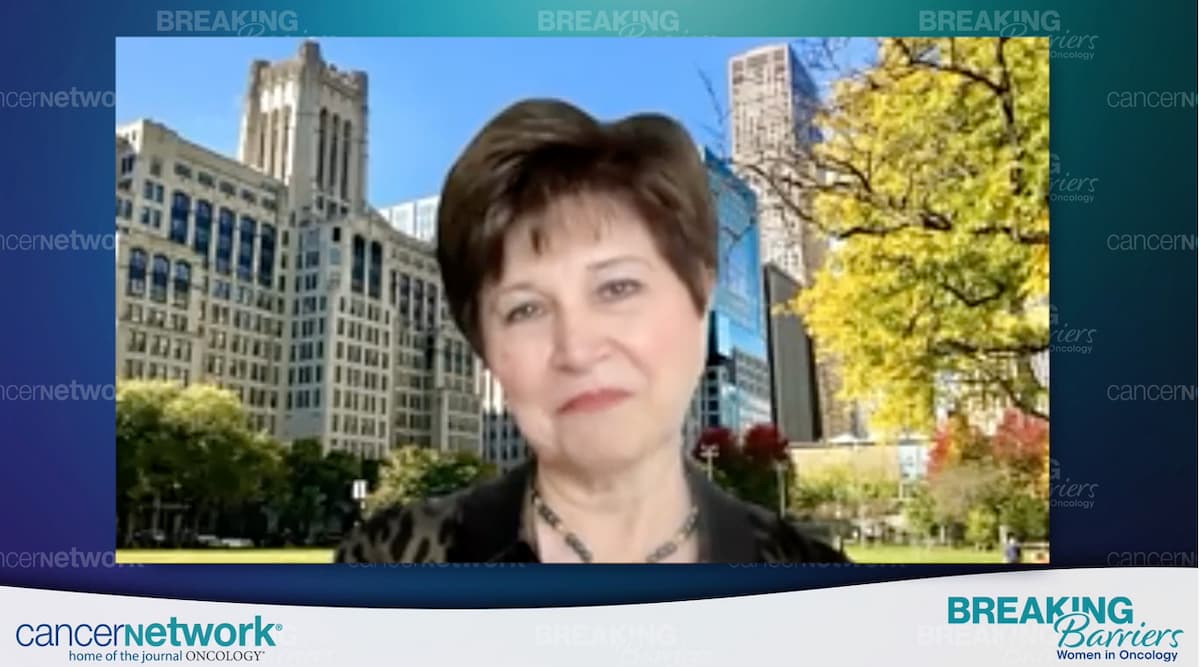
Determining Personal and Professional Work/Life Balance in GU Oncology

Two women in genitourinary oncology discuss their experiences with figuring out when to begin a family and how to prioritize both work and children.
Work-life balance can be especially difficult for female physicians in genitourinary (GU) oncology, given the demanding nature of the field.
In a recent conversation with CancerNetwork® in Breaking Barriers: Women in Oncology, Maha H. Hussain, MD, and Sarah E. Fenton, MD, PhD, focused on how they decided to start families and if it impacted their work.
Hussain, a Genevieve E. Teuton Professor of Medicine at Northwestern Medicine, recalled working through residency while she was pregnant and determined that having a family was important to her, but so was her job.
Fenton, an assistant professor of Medicine at Northwestern Medicine, said she struggled with finding the perfect timing to start a family but eventually learned how to balance her professional and personal life.
Transcript:
Fenton: I don’t know that this is GU-specific, but one thing as a woman entering the field of medicine or entering any profession where you have to put a lot of work into it is that I remember struggling with the family part of it. I wanted children; I knew that was important to me. When would that figure in? How am I going to do that? I remember talking to one of my residency mentors, who [said] there are seasons to your career. If you end up having kids, and that becomes a period where you’re not putting hours, weekends, and all this time into work because you have a newborn, that’s okay. You have to think a little bit broader and recognize that even if at this moment, you feel like you’re not 1000% at work, it’s going to be that way in the future. [Work is like] seasons that shift from day to day and week to week, and you just need to think about what’s important to you and try to attain all those things. That shifted my way of thinking about starting a family, which was an important thing to me. I have 2 little kids, and they’re the best.
Hussain: Family is very important. As women, it’s very critical to balance the personal life and the professional life. Being a mother doesn’t give you credit in your career, technically; that’s a reality. I would say sleep is overrated, work hard, and figure out how to balance things. As a person who came from Iraq—I’m from Baghdad, was born and raised there, and did my medical school there—[my family] came in as immigrants. As interns, when we started our careers, we made 5 bucks; well, maybe not exactly 5 bucks. My salary in my first year was $17,000. I was pregnant the whole year, we were on call every third night, and I could do it. The point here is this: you have to be setting yourself up and deciding your priorities. You can parallel-track your career and your personal life. I would say motherhood is wonderful. It’s a wonderful opportunity to be a mother. At the same time, it was a wonderful opportunity to be a physician and move the field there and work hard. Don’t forget that your personal life is very important because a happy personal life also reflects on your work life.
Newsletter
Stay up to date on recent advances in the multidisciplinary approach to cancer.



































